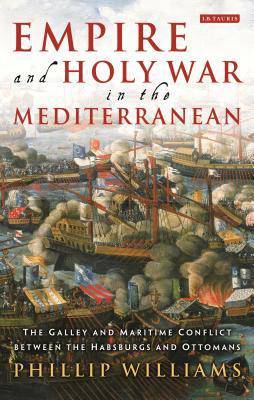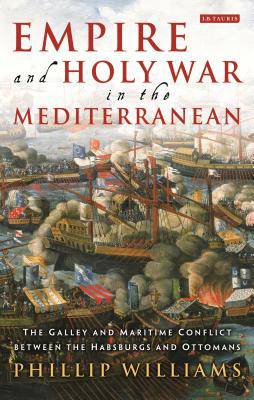
- Afhalen na 1 uur in een winkel met voorraad
- Gratis thuislevering in België vanaf € 30
- Ruim aanbod met 7 miljoen producten
- Afhalen na 1 uur in een winkel met voorraad
- Gratis thuislevering in België vanaf € 30
- Ruim aanbod met 7 miljoen producten
Zoeken
Empire and Holy War in the Mediterranean
The Galley and Maritime Conflict between the Habsburgs and Ottomans
Phillip Williams
€ 62,95
+ 125 punten
Omschrijving
In the century after 1530 the Habsburgs of Spain and the Ottoman Turks fought a maritime war that seemed destined to lead nowhere. Lasting peace was as unlikely as final triumph, in part because the principal beneficiaries of the fighting were pirates or 'corsairs' based in ports such as Malta and Algiers. It was also a war of unequal means, since the Habsburgs had too few good warships and the Ottomans too many bad ones. Phillip Williams here provides a detailed examination of the oared warships used in the fighting, the structures of political and military organization, the role of geography and the environment and the respective claims to be defending 'Christendom' and 'Islam' advanced by Habsburg rulers such as Charles V and Philip II and the Ottoman Sultan Suleyman the Magnificent. Providing a unique perspective on early modern maritime conflict, this book will be essential reading for all students and researchers of Mediterranean History and the early modern world.
Specificaties
Betrokkenen
- Auteur(s):
- Uitgeverij:
Inhoud
- Aantal bladzijden:
- 384
- Taal:
- Engels
- Reeks:
Eigenschappen
- Productcode (EAN):
- 9781784533755
- Verschijningsdatum:
- 15/07/2015
- Uitvoering:
- Paperback
- Formaat:
- Trade paperback (VS)
- Afmetingen:
- 137 mm x 213 mm
- Gewicht:
- 408 g

Alleen bij Standaard Boekhandel
+ 125 punten op je klantenkaart van Standaard Boekhandel
Beoordelingen
We publiceren alleen reviews die voldoen aan de voorwaarden voor reviews. Bekijk onze voorwaarden voor reviews.








